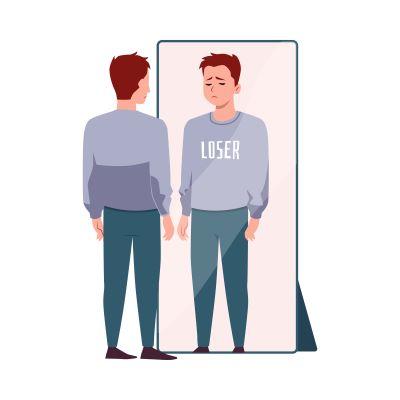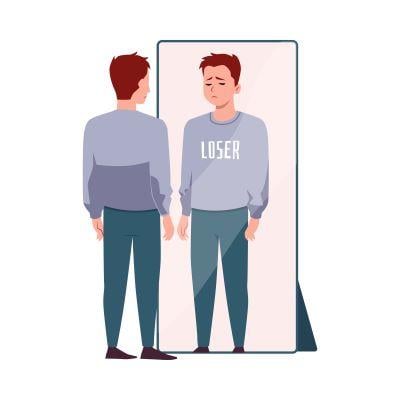BDD, Surgeons, and Surgery: Considerations and Questions to Ask
BDD, Surgeons, and Surgery: Considerations and Questions to Ask

Surgery can be lifesaving. Surgery is often needed and can, for many conditions and situations, be a game changer. But more often than not, a surgical procedure for someone with Body Dysmorphic Disorder (BDD) will not help. It could potentially relieve the person of their symptoms for a short amount of time but it cannot treat or cure the underlying disorder.
BDD is a neurological disorder where a person is overly preoccupied with one or more perceived physical flaws, though others may not see or notice anything. Also known as the disease of self-perceived ugliness, BDD can sometimes manifest in prepubescent years because of the changing hormones associated with this time but it can take, on average, 17 years for patients, regardless of gender or socioeconomic status, to be diagnosed. Many people are instead treated for obsessive compulsive disorder (OCD) or substance use disorders.
Seeking A Physical Change
Because of obsessions and delusions about body image or physical flaws, 50 percent of patients with BDD will go to a dermatologist or cosmetic professional to alter or change something. They may seek a referral to a plastic surgeon or provider who can offer a more permanent “solution.” However, these procedures almost never offer an answer and do not improve symptoms. Often, they worsen them. To add to the confusion, many plastic surgeons, nurses, and dermatologists are not properly trained to identify BDD, much less diagnose it, and as a result, they may readily perform procedures on these patients.
The result of any surgery or procedure for someone with BDD will almost always prove unsatisfactory to the person. Unfortunately it often doesn’t stop there. Rather than going to a psychologist, psychiatrist, or therapist when the symptoms return, the person seeks more physical changes. Until the root issue – in other words the BDD – is diagnosed and treated, the person may continue to go to any provider (often changing doctors) who is willing to perform a procedure or surgery.
Questions the Surgeon Can Ask
The questions below are good to ask regardless of whether or not a surgeon suspects a patient might be seeking treatment because of a mental health disorder like BDD. Good practice and insight, along with the following questions can help identify someone with BDD before a needless surgery that may in fact make matters worse:
1. Is this your first surgery?
2. How many have you had all together?
3. Have you had surgery done more than once to any part of your body?
4. What was the level of your satisfaction (on a scale from 1-10)?
5. Were your concerns resolved after the first surgery?
6. How did your self-image change for the better or worse after the first surgery?
7. Concerning the body part you want to modify now:
a. How upset are you with this body part (on a scale from 1-10)?
b. How many hours per day do you check or look at that body part?
Signs for Providers, Family Members and the Community
It is imperative that plastic surgeons pay attention to prospective patients and understand what signs to look for in someone suffering from BDD. In fact, all of the person’s providers should have an understanding of the disorder and be able to recognize the symptoms, especially if the person is coming in multiple times to see them about the same issue. Spotting the difference between a general worry or concern about a body part or flaw and obsessing over it to the point where it is making the person miserable is essential.
In addition, the general public should be taught about potential signs to look for because identifying BDD is the first step in addressing it. As a result of the anxiety associated with their perceived defect, BDD patients perform compulsions in order to control their feelings (i.e., camouflage, repeatedly looking in the mirror, or pursuing multiple medical procedures). Common areas of concern for BDD sufferers are the nose, skin, hair, chin, or ears. Often avoiding going out or attending public events, people with BDD spend excessive time trying to make themselves appear presentable, which interferes with their day-to-day activities.
BDD is a syndrome and is associated with many other conditions. People with BDD can be highly impulsive and the population has high rates of suicidality. Additionally, these body image problems may also be associated with comorbid eating disorders and OCD and screening should be done for those as well. It is also important to be aware of profound clinical depression, social anxiety, and fears of evaluation. Severe avoidances, which are synonymous with compulsions, must be targeted first. People with BDD are typically unaware of these additional disorders or attempt to hide them. So assessing for all associated conditions is extremely important.
Do the Right Thing
Once a surgeon has identified that a patient may have BDD, they have an ethical responsibility not to perform the patient’s desired procedure. This can create a conflict of interest, of course, and the surgeon might see it as losing business (hence money) but we must, as a society, have a moral obligation to ensure people with BDD get the right care and treatment.
It is not only unfair to the patient for a plastic surgeon to overlook a potential illness or negative outcome of a surgery, but for people with BDD, the procedure contributes to the disorder. Psychoeducation is the first step in combatting this conflict of interest, and surgeons should be made aware of the seriousness of BDD, as well as of the grave consequences that come from ignoring or putting their interests first.






















